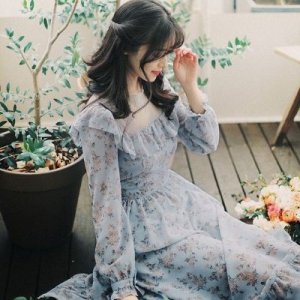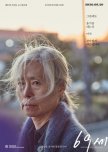Featured story
If elder abuse is a taboo subject that is rarely afforded the serious consideration and action that such horrors demand, then elder sexual abuse is even more so. Playing at the 2020 Toronto International Film Festival as a Private Screening, with her film An Old Lady, South Korean filmmaker Lim Sun-ae tackles an extraordinarily challenging subject with such enormous grace, delicacy, compassion and thoughtfulness that it renders this close-to-perfect film as one of the year’s most easily missed cinema highlights.
The film follows Hyo-jeong (Ye Soo-jung), who we first meet in the film’s opening moments in total darkness. Over a black screen, we hear her politely chat to a male nurse during a physical therapy session, his flattery increasing until a narrative ellipses and a dramatic cut to the abstracted, empty hospital itself implies without relying on sensationalized explicitness that something has clearly happened. As the title suggests, Hyo-jeong is very much a “lady” in the most traditional sense of the word; she is polite, reserved, and clearly does not like to make a fuss. How a 69 year old woman who has been raped in a hospital by a care giver responds to this situation is largely the question around which An Old Lady spins.
While there are numerous factors that render An Old Lady such an important film, the combined performance of Ye Soo-jung with Lim Sun-ae – the latter of whom also wrote the screenplay – is very much the engine that drives the film to its gentle but authentic conclusion. Making a film about rape is already a ethically challenging terrain, but by so fearlessly deciding to add the element of elder abuse to the equation, Lim Sun-ae proves herself to be braver than most.
Even more importantly, of course, is how well she succeeds: Hyo-jeong is never reduced to a pathetic victim, but neither is she patronizingly rendered as an unbelievable superhero. Her challenges feel real and are handled with great sensitivity: was the encounter consensual and did Hyo-jeong merely forget, possibly suffering from the first stages of dementia? The questions Lim Sun-ae knows the audience are, in our most shameful moments, asking ourselves are made explicit in the film by Hyo-jeong herself as she struggles to deal not only with the trauma of what happened to her, but her lack of faith in her own capacity to remember it with clarity.
There’s a sense of sadness with a film this courageous and well executed about such a difficult subject that it will go largely unseen, the taboo nature of the subject matter alone turning an audience off. But that alone is precisely what makes this film so urgent; An Old Lady tells us something we don’t really want to hear in a way that makes us forget why we refused to listen for so long.
The film follows Hyo-jeong (Ye Soo-jung), who we first meet in the film’s opening moments in total darkness. Over a black screen, we hear her politely chat to a male nurse during a physical therapy session, his flattery increasing until a narrative ellipses and a dramatic cut to the abstracted, empty hospital itself implies without relying on sensationalized explicitness that something has clearly happened. As the title suggests, Hyo-jeong is very much a “lady” in the most traditional sense of the word; she is polite, reserved, and clearly does not like to make a fuss. How a 69 year old woman who has been raped in a hospital by a care giver responds to this situation is largely the question around which An Old Lady spins.
While there are numerous factors that render An Old Lady such an important film, the combined performance of Ye Soo-jung with Lim Sun-ae – the latter of whom also wrote the screenplay – is very much the engine that drives the film to its gentle but authentic conclusion. Making a film about rape is already a ethically challenging terrain, but by so fearlessly deciding to add the element of elder abuse to the equation, Lim Sun-ae proves herself to be braver than most.
Even more importantly, of course, is how well she succeeds: Hyo-jeong is never reduced to a pathetic victim, but neither is she patronizingly rendered as an unbelievable superhero. Her challenges feel real and are handled with great sensitivity: was the encounter consensual and did Hyo-jeong merely forget, possibly suffering from the first stages of dementia? The questions Lim Sun-ae knows the audience are, in our most shameful moments, asking ourselves are made explicit in the film by Hyo-jeong herself as she struggles to deal not only with the trauma of what happened to her, but her lack of faith in her own capacity to remember it with clarity.
There’s a sense of sadness with a film this courageous and well executed about such a difficult subject that it will go largely unseen, the taboo nature of the subject matter alone turning an audience off. But that alone is precisely what makes this film so urgent; An Old Lady tells us something we don’t really want to hear in a way that makes us forget why we refused to listen for so long.
Was this review helpful to you?























